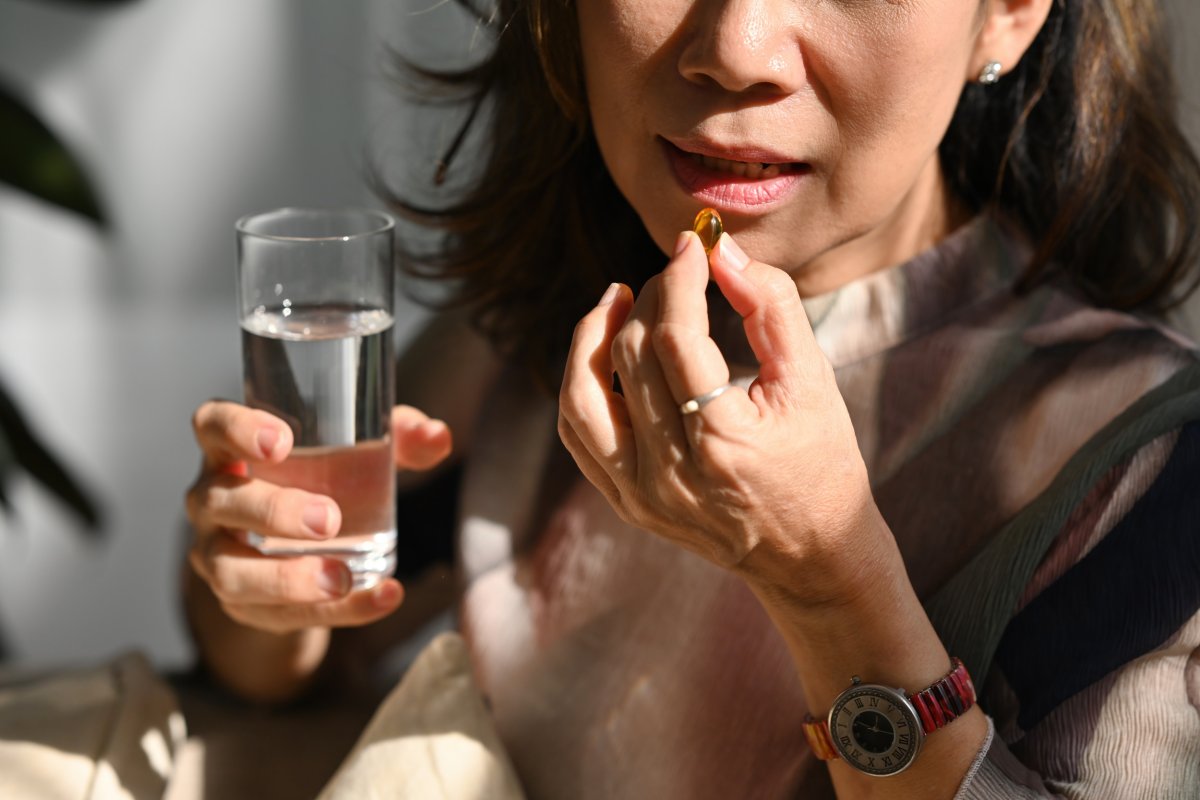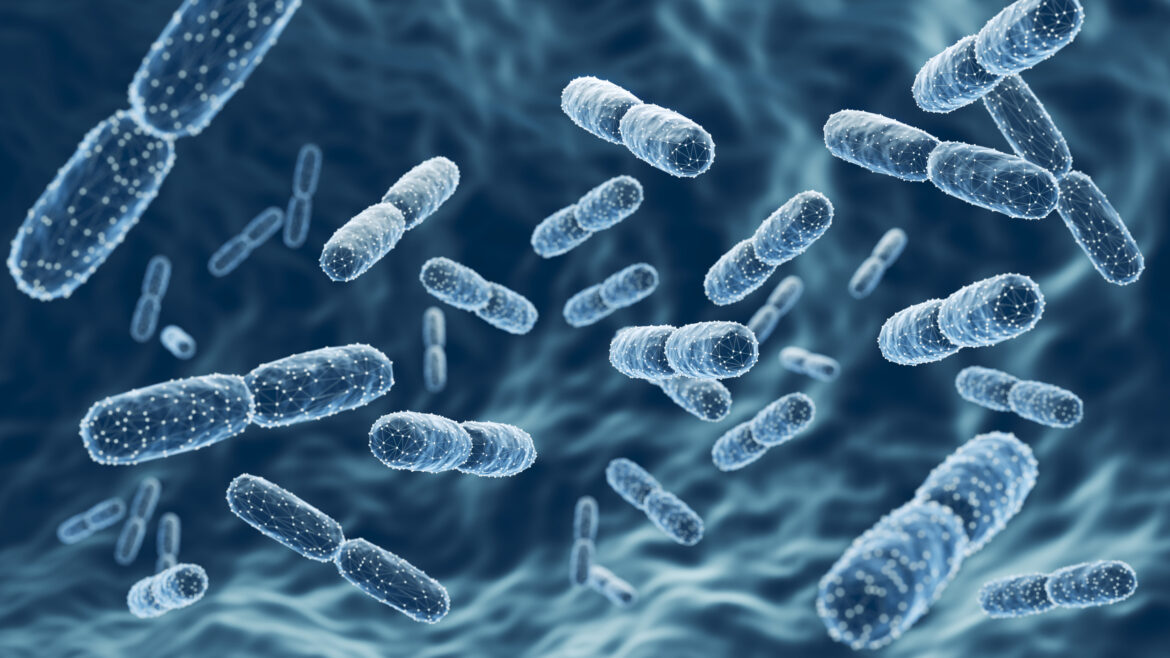Common food bacteria could be rewired to produce more vitamins—and “help to transform nutrition and medicine.”
This is the discovery of scientists at Rice University who have revealed how a bacterium called Lactococcus lactis regulates the production of a key precursor in the production of vitamin K₂, which is important for bone health, vascular health and clotting factors that stop bleeding.
The bacteria create enough of this precursor to support their growth while preventing toxic buildup.
“Vitamin-producing microbes could transform nutrition and medicine, but we must first decode their inherent checks and balances,” said paper author and biosciences researcher professor Caroline Ajo‑Franklin in a statement. “Our work shows how L. lactis finely tunes its internal supply of the K₂ precursor, allowing us to rewire it with precision.”
The method could improve supplements and fortified foods and make vitamins cheaper and more environmentally friendly.

Digital 3D illustration of probiotic bacteria.
Digital 3D illustration of probiotic bacteria.
anusorn nakdee/Getty Images
Engineering microbes to overproduce vitamins provides a greener and more cost-effective alternative to chemical synthesis or extraction from plants and animals, the researchers said.
However, bacterial cells typically limit their production to self-sustaining levels.
By dissecting the control system for the vitamin K₂ (also known as menaquinone) precursor, the study authors have identified how “substrate availability” and “genetic architecture” impose a production ceiling and how those limits can be lifted.
The study focuses on the “unstable intermediate compound” that channels all forms of vitamin K₂.
“A vitamin K₂ deficiency usually manifests as a propensity for excess bleeding, bruising and potentially gastrointestinal bleeding,” Ajo‑Franklin told Newsweek.
“It can be particularly hazardous for newborns, who can experience intracranial bleeding. As a result, it is standard care in the United States for all babies to receive a vitamin K₂ shot at birth.
“A vitamin K deficiency can be caused by insufficient consumption of fermented food (natto, sauerkraut, cheeses, etc.) and animal products like egg yolks, fatty fish, or diseases/conditions that impair the body’s ability to absorb vitamin K₂ in the gut, like celiac disease, cystic fibrosis or extended use of antibiotics.
She added: “Vegan diets can be low in K₂ unless supplemented.”

Closed up shot of woman’s hand taking supplement capsule.
Closed up shot of woman’s hand taking supplement capsule.
Pranithan Chorruangsak/Getty Images
The researchers used a three-prong approach in their investigation, including biosensing (a device that can detect biological substances), genetic engineering and mathematical modeling.
They built a custom biosensor in a different bacterium to help detect the precursor—thousands of times more sensitive than conventional methods and requiring minimal lab equipment.
Next, they used the genetic tools to alter the levels of enzymes in the biosynthetic pathway. By measuring precursor output under different conditions, they fed the results into a mathematical model of the pathway. At first, the model assumed an unlimited precursor supply, but predictions didn’t align with laboratory results.
“Once we allowed for depletion of the starting substrate, the model output matched our experimental data,” said paper author and computational systems biologist Oleg Igoshin, study author in a statement.
“It became clear that cells hit a natural production ceiling when the substrate runs low.”
Just overexpressing pathway enzymes did not increase output beyond the threshold, however, because precursor materials became limited. The researchers compared this to attempting to bake more cookies with extra baking sheets, but without enough flour.
However, the order of enzyme-encoding genes on DNA also influenced precursor levels. They found rearranging these genes altered how much intermediate the cell produced, suggesting an additional layer of “evolutionary regulation” that has not been well understood.
“By tuning substrate supply, enzyme expression and gene order simultaneously, we can push production above the natural ceiling,” said paper author and biochemist Siliang Li, in a statement.
This opens the door to engineering L. lactis or other food-grade bacteria to produce more vitamin K₂ in fermentation processes in probiotic formulations, the researchers said.
L. lactis, Ajo‑Franklin explained, “is also a probiotic bacterium, meaning that it promotes a healthy gut. It is found in a variety of fermented foods, most notably cheese and yogurt.”
“We’ve figured out how to reprogram the cells to make more vitamin K₂ with the natural enzymes they produce. We discovered the cells are very carefully controlling the production of vitamin K₂ through two overlapping control mechanisms. With this understanding, we can now predict what changes we need to make to override that control.
“Previous efforts were only partially successful because they didn’t know about both control points.”
Ajo‑Franklin added that it could lower the cost of current vitamin K₂ production. “Additionally, being able to produce vitamin K₂ by bacteria allows you to make it wherever needed, whether that’s in space or somewhere on Earth, far away from large manufacturing facilities.”
If vitamin K₂ is produced by bacteria in the gut, the researchers said there is a possibility of the absorption being more effective than standard vitamin tablets.
With Vitamin C and vitamin B₁₂ both currently manufactured using microorganisms, the researchers said a similar approach might enable them to make higher levels of these vitamins too.
Do you have a tip on a health story that Newsweek should be covering? Do you have a question about vitamins? Let us know via health@newsweek.com.
Reference
Li, S., Zhang, J., Ajo-Franklin, C. M., & Igoshin, O. A. (2025). The growth benefits and toxicity of quinone biosynthesis are balanced by a dual regulatory mechanism and substrate limitations. mBio. https://doi.org/10.1128/mbio.00887-25


Dining and Cooking